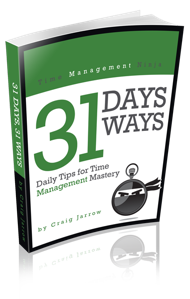We are a quick fix society.
We want immediate action.
We expect immediate results.
When we don’t get them, we complain. Often, we get upset.
Then we quit and move on to something else.
When Do You Give Up?
Too many people flit from one activity or goal to the next.
They want immediate gratification whether it is a simple task or a long-range goal.
Unfortunately, that’s not how life works. It’s not how you win.
To accomplish great things, you have to put in the work.
And then you have to put in more.
“Those who win are the ones who keep going, long after everyone else has given up and gone home.”
Most people are starters and stoppers.
They love to start new things, and then they hang it up just as quickly.
(Whether it is a new skill, a new workout program, or even a new job.)
Instead, you need to be a starter and a finisher.
Quitting Too Early
Why do you quit?
Because things are… Too hard? Too much work? Too much discomfort?
You have to be willing to go through, around, and over the obstacles in your way.
To paraphrase one of my mentors Randy Pausch…
The brick walls are there to make you show how badly you want something.
They’re there to keep out the other people.
Simply put, winners do the things that losers are not willing to do.
Winners put in the work. They do the practice. They have the discipline.
The others? They let the walls keep them out.
They quit too soon, often within site of the goal line.
They think that is good enough.
Don’t Stop Now
Those that “don’t give up,” know another secret.
In many of life’s most important things… there is no clear finish line.
You keep going. You keep doing the right thing.
And you keep winning… long after others have given up.
Question: Do you give up too early? What are you doing that you need to stick with?

 I am the author of Time Management Ninja and help individuals and companies reclaim their time to be more productive. As well, I am the author of the book
I am the author of Time Management Ninja and help individuals and companies reclaim their time to be more productive. As well, I am the author of the book 

@zcichy Is it just me, or was that (great) link not entirely uncoincidental? 😉
@gabeglick 😉
@TMNinja applies to dog training as well! thanks!
Thanks! I found this via a tweet.
I know it’s true, and I am experiencing how hard hard can be.
Still I am achieving my ambition, and I am known for defying anyone and everyone who tells me I can’t do it.
So thanks for that little poke
If at first you don’t succeed, don’t try parachuting.
But seriously, sometimes giving up is actually highly rational and effective if it leaves you free to do something better, more effective, more enjoyable or more rewarding.
We have a strong psychological bias towards commitment; towards continuing to do things we said we were going to do or in which we have invested. But sunk costs and wasted time are just that; sunk and wasted.
Start from today and decide what’s best.
Sometimes persistence is right. Sometimes creative destruction. Defaulting automatically towards one extreme or another can’t be helpful.
Craig,
I think this is such an importan thing. I’ve had many false starts in my life and when I was thinking about why my earliest blogs failed, it all comes back to this idea. I called it the “Dabbler’s disadvantage.” People who dabble don’t make progress with anything,
@skooloflife Srini, yes… agreed! Those who dabble rarely accomplish big things.
Craig,
This reminds me what many people are saying: “I tried this and that (once), it didn’t work out for me”.
Trying something just once is not enough, you have to give enough time (and tries) to get a better picture if something is working or not.
Quitting right after starting is the worst thing to do. It’s like you haven’t actually started at all!
Cheers,
Timo
@timokiander Exactly. You have to keep doing something… to get better at it. 🙂
@justinwise is it ok to be a time management ninja?
For me, the good question is “When to quit”?
On this topic, I highly recommend a book by Set Godin : “The Dip: A Little Book That Teaches You When to Quit (and When to Stick) “.
In this book, you’ll read that “Winners quit fast, quit often”, but they quit on the “good” topics …
@lmau Yes… love Seth’s “The Dip” book. A great short read for anyone that is trying to decide if it is the right time to quit.